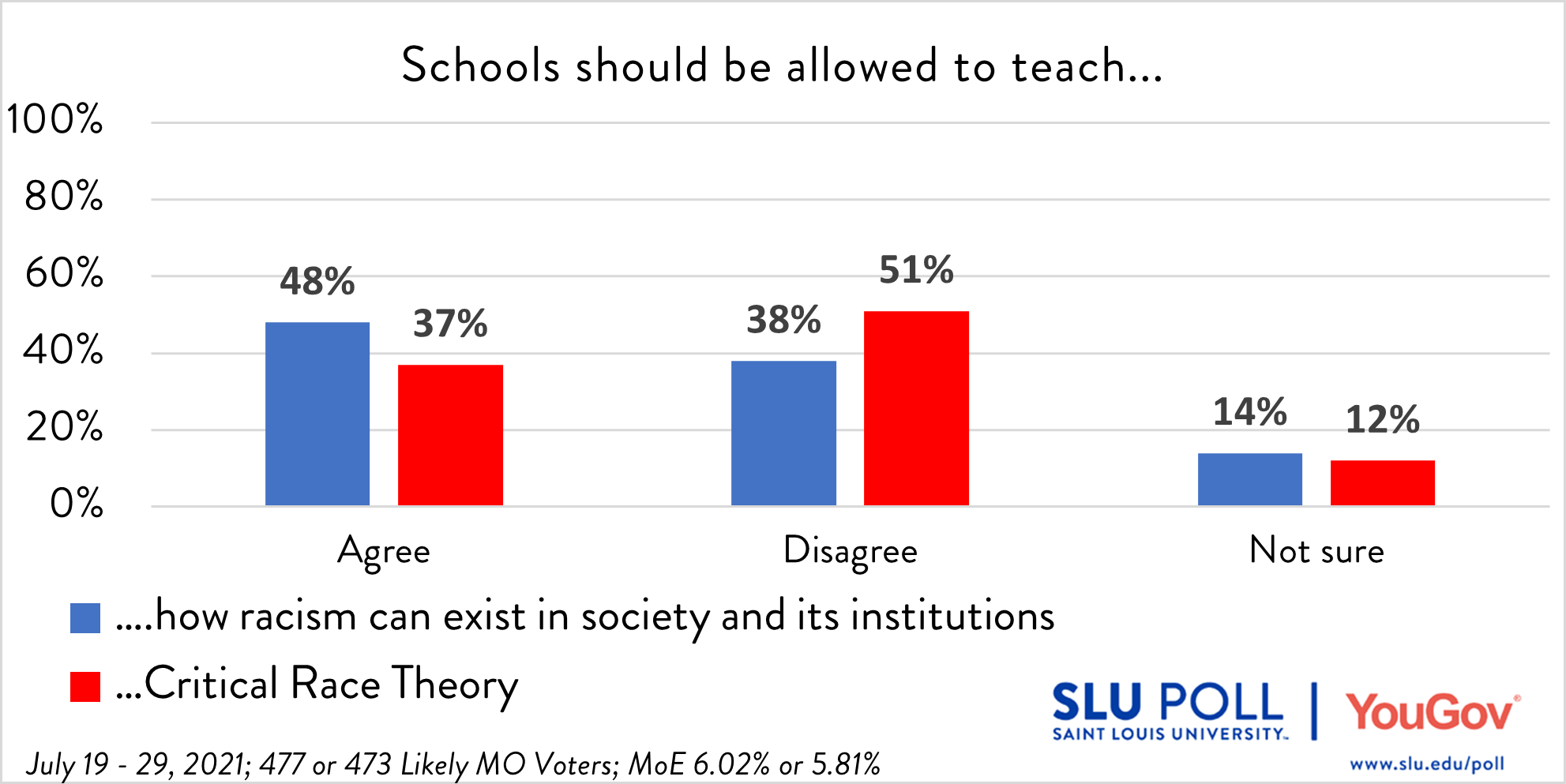Missourians Disagree with Allowing the Teaching of Critical Race Theory, but Remain Unsure About Teaching Institutional Racism
By Evan Rhinesmith, Ph.D., Associate Director, SLU/YouGov Poll; J. Cameron Anglum, Ph.D.
A subset of Americans has not been shy to express their disagreement with the prospect of instruction related to Critical Race Theory (CRT). This past spring, many Missouri school board meetings were marred by heated arguments over the appropriateness of CRT-related teaching in the state’s public schools, with Gov. Parson proclaiming, “Critical Race Theory has no business being taught in Missouri Classrooms.”

In the SLU/YouGov Poll we asked half of our sample of Missouri’s likely voters if they agree schools should be allowed to teach CRT. 51% of likely voters indicated they disagree when explicitly asked about teaching CRT, 37% indicated agreement, and 12% indicated they are unsure (margin of error ± 5.8%). We asked the other half of respondents if they agree schools should be allowed to teach about societal and institutional racism. 48% of likely voters indicated agreement, 38% indicated disagreement, and 14% indicated they were unsure (margin of error ± 6.0%).
Unsurprisingly, support for CRT is heavily divided along political lines. Nearly three-quarters (74%) of Democrats agree with allowing the teaching of CRT in schools. Conversely, 81% of Republicans disagree with allowing the teaching of CRT. When asked about teaching about institutional racism, support among Democrats increases to 85%. Republicans still disagree with schools teaching about institutional racism, but the proportion who disagree falls to 63%. Self-identified political Independents indicated strong disagreement with allowing the teaching of CRT in schools, as 59% disagree, 29% agree, and 12% are unsure. However, when asked whether schools should be allowed to teach about institutional racism, Independents’ opinions reverse. 54% agree, 36% disagree, and 11% are unsure.
Findings from our SLU/YouGov Poll indicate that some respondents likely misunderstand what CRT entails, suggesting concern with CRT may be more in its name than its actual substance. The difference in opinion based on question wording is important, as CRT teaches that race is a social construct embedded in policies and systems. While the idea of CRT is unpopular among Missourians, especially among Republicans, the core concept of allowing the teaching of CRT garners more support among Democrat and Independent voters. The increased uncertainty among Missourians when presented CRT-related concepts rather than the explicit identification of CRT indicates likely misapprehension of the academic concept.

















